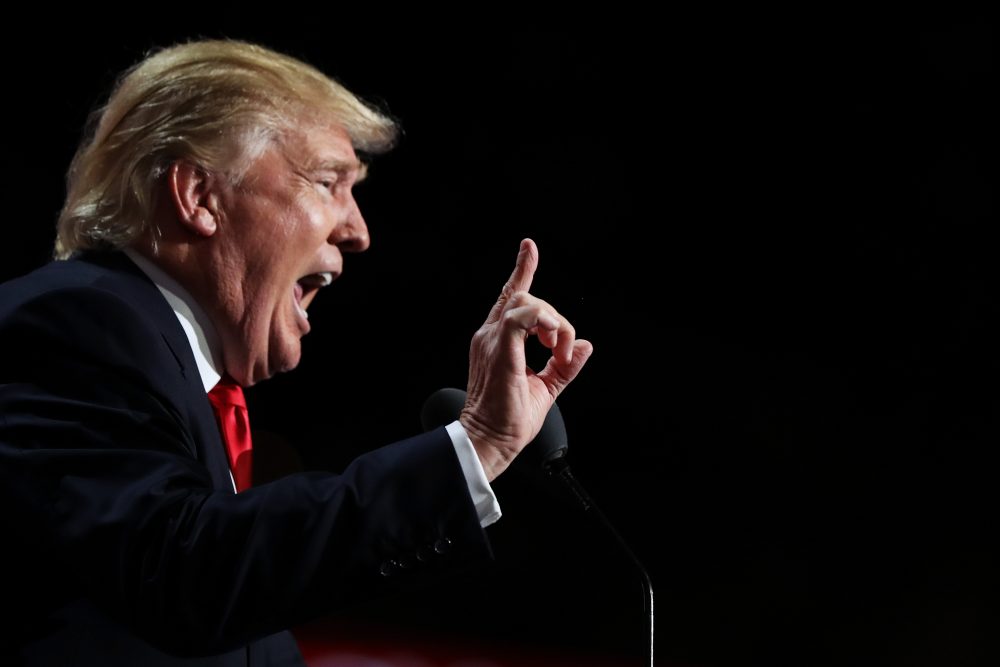Advertisement
Donald Trump's Power To Move Markets

Donald Trump is not president yet, but his words already carry a lot of weight. Pharmaceutical stocks took a dive last month when he told Time magazine that he doesn't like “what’s happened with drug prices.” And he promised to bring them down.
Here & Now's Peter O'Dowd talks more about the power the president has to move markets with Matt Slaughter, dean of the Tuck School of Business at Dartmouth College. Slaughter also served on the Council of Economic Advisors in the George W. Bush administration.
Interview Highlights
On how much influence the president has on markets
"The power is substantial. The president is the commander in chief, and is, in some broad sense, the chief economic policy leader of the United States. When he or she speaks, if it's relevant to a particular company or a particular industry, markets, historically, can move and have moved quite a bit."
"Oftentimes when we think about economic policy, around times of economic turmoil or, think especially of the financial crisis the United States experienced in late 2008 and early 2009, it was vital during that time that President Bush and his key advisers, such as Treasury Secretary Hank Paulson and Fed Chairman Ben Bernanke, they needed to choose their words very prudently and carefully to try to not to aggravate the panic that was spreading in financial markets."
"Our American labor market is incredibly dynamic. ... The idea that the president can somehow monitor and evaluate the many business decisions behind all that dynamism in the labor market, I think, is pretty off-base."
Matt Slaughter
On Donald Trump's recent market-related comments singling out drug prices and Boeing
"I think he understand fully well, as an experienced business leader, the power of the words that government leaders have. And, importantly, the way that business leaders need to allocate their time. He knew full well, I believe, that when he tweeted about Boeing or about drug company prices, how that would change the behavior of the CEOs and key leaders in these companies and make them have to focus substantial time and energy on addressing the immediate concerns that president-elect was voicing and the broader policy issues that he was raising."
On the idea that presidents "shouldn't pick winners and losers"
"I think it comes from a long history where a lot of academic research and policy research shows that government leaders, as earnest as their desire might be to create good jobs and good wages, when they get into the business of trying to identify viable and profitable business opportunities for particular companies or industries, government leaders are no better — and in many cases far worse — than the private sector trying to do the same thing with stock picks and so forth. So, governments trying to pick successful companies and industries, has a track record in the United States and many other countries of not doing all that well."
"Our American labor market is incredibly dynamic. ... The idea that the president can somehow monitor and evaluate the many business decisions behind all that dynamism in the labor market, I think, is pretty off-base."
This segment aired on January 2, 2017.